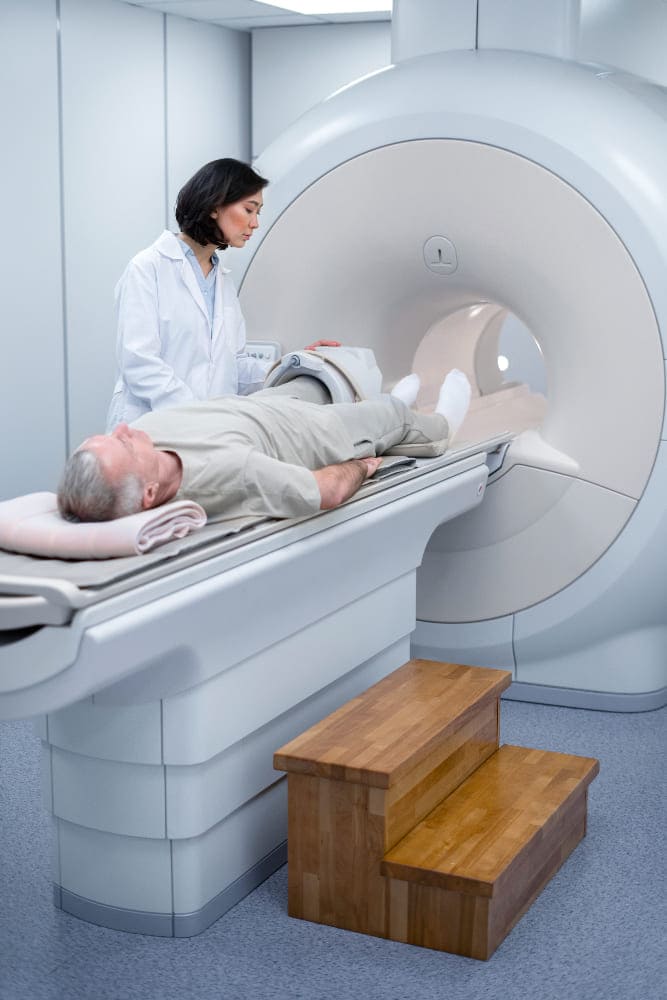
Overview
KUB Scan
A KUB (Kidneys, Ureters, and Bladder) scan is a non-invasive diagnostic imaging procedure used to assess the urinary system. It provides detailed visuals of the kidneys, ureters, and bladder, helping detect various conditions affecting these organs.
Why Is a KUB Scan Important?
- Detection of Kidney Stones: Identifies the presence and location of stones in the kidneys or ureters.
- Evaluation of Urinary Tract: Assesses abnormalities like blockages, infections, or tumors.
- Bladder Health: Detects issues like bladder stones, wall thickening, or tumors.
- Monitoring Chronic Conditions: Tracks progress in cases of kidney disease or recurrent urinary tract infections.
- Guided Interventions: Assists in procedures like lithotripsy or catheter placements.
When Should You Consider a KUB Scan?
- Persistent lower back or abdominal pain.
- Difficulty urinating or blood in the urine.
- Suspected kidney stones or urinary tract infections (UTIs).
- Monitoring kidney function in chronic conditions.
- Preoperative planning for urinary tract surgeries.
Advantages of a KUB Scan
- Non-Invasive: Quick and painless procedure.
- Clear Imaging: Offers accurate visuals of the urinary system for precise diagnosis.
- Early Detection: Helps identify issues before they become severe.
A KUB scan is an essential diagnostic tool for maintaining urinary system health. If you experience symptoms like pain, discomfort, or urinary irregularities, consult your doctor to determine if a KUB scan is necessary.

